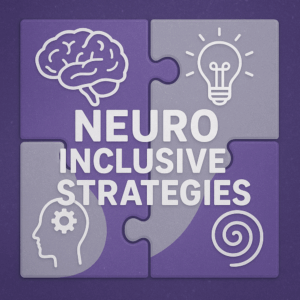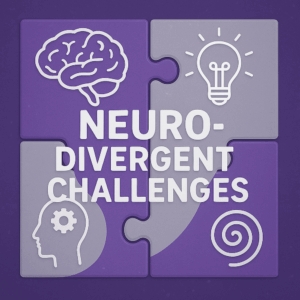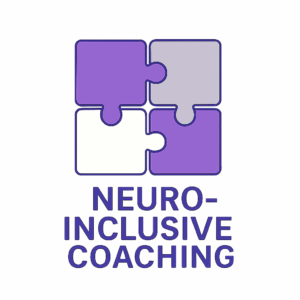1. High Prevalence and Underdiagnosis
Research suggests that up to 20% of the global population is neurodivergent, encompassing conditions such as ADHD, autism and dyslexia (World Economic Forum, 2022). Yet many people remain undiagnosed: in the UK alone, an estimated 2.5 million adults are neurodivergent without a formal diagnosis (Autistica, 2023).
For coaches, mentors and supervisors, this means neurodivergence is far more common than it might appear in the our sessions. Developing strategies that enable flexible thinking, sensory awareness, and different modes of engagement ensures that we can support all clients – including those who may not yet have language or understanding for their own neurodivergent experience.
2. Building Ethical Awareness: When and How to Raise Neurodiversity
This is one of the most delicate and ethically charged areas of practice. Coaches often sense when a client’s ways of thinking or processing may reflect neurodivergent traits. Raising this possibility can be empowering – or potentially harmful – depending on the timing, framing, and the client’s readiness.
Crucially, coaches, mentors and supervisors are not diagnosticians. Ethical awareness means knowing when to name an observation and when to simply adapt our approach without labelling. As with all powerful supportive conversations, how and when we speak matters deeply.
Research underscores that coaching, mentoring and supervision for neurodivergent clients should always be client-led and personalised to reduce stress and uphold autonomy (Blaney & Hannell, 2025). Doyle and McDowall (2024) remind us of the need to safeguard vulnerable clients and honour natural ways of being, while neurodivergent-led frameworks such as Thriving Autistic (2021) emphasise the importance of self-determination and respect.
3. Traditional Models and Methodologies Don’t Always Fit
Many popular models and methodologies assume linear thinking, clear goal-setting and structured reflection. For some neurodivergent clients, this can be overwhelming or alienating.
For example:
-
Clients with ADHD may experience thought overload, making prioritisation difficult.
-
Clients with demand avoidance may disengage if accountability feels externally imposed.
-
Multi-step plans can feel impenetrable unless broken down into smaller, flexible actions.
Without adaptation, even the most well-intentioned coaching can become confusing or discouraging. Neuro-inclusive practice invites coaches to co-create flexible structures, use plain language, and allow for different ways of processing and reflecting.
4. Unlocking Strengths, Not Fixing Deficits
Neurodivergent brains bring enormous strengths: creativity, innovation, pattern recognition, deep focus, empathy, and lateral thinking. Ethical coaching doesn’t aim to ‘fix’ or ‘normalise’ these differences – it seeks to amplify them.
Doyle and McDowall (2024) highlight that truly ethical neurodiversity coaching, mentoring and supervision celebrates difference rather than enforcing conformity to neurotypical norms. When coaches make space for clients to think out loud, take intuitive leaps, and design accountability that fits their unique wiring, strengths flourish and confidence grows.
5. Professional Growth and Social Impact
Developing strategies for neurodivergent clients is not just a matter of skill – it’s a matter of integrity. Coaches who embrace neuro-inclusion deepen their professional practice, broaden their impact, and help build a coaching culture grounded in equity and respect.
This commitment contributes to a wider social shift: one where neurodivergent people are not excluded from personal or professional development opportunities, but fully welcomed and supported.
 A Call to Ethical and Inclusive Practice
A Call to Ethical and Inclusive Practice
The more we understand about neurodiversity, the more we realise that inclusion isn’t an optional extra – it’s at the very core of ethical coaching, mentoring and supervision.
Developing neuro-inclusive strategies is all about deepening ethical practice and inclusive strategies; it allows us to meet every client with authenticity, empathy and suitable strategies.


 A Call to Ethical and Inclusive Practice
A Call to Ethical and Inclusive Practice